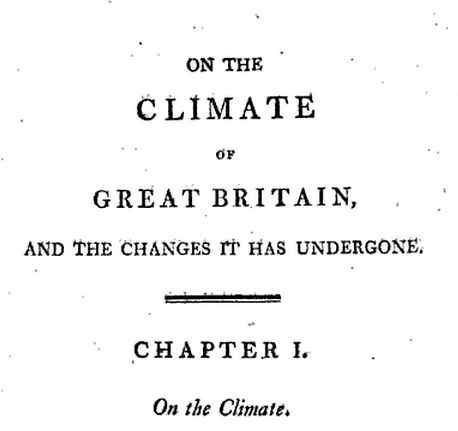Climate superstition has been around for as long as the human race.
It has been an opinion universally adopted of late years, that the generality of our summers arc more wet, and consequently colder, and our winters less frosty and, more mild than they formerly were. This remark has been made not only by speculative, but practical men; by those most observant, because most affected by ungental weather. Persons ignorant of the strong and uniform connection between cause and effect arc utterly at a loss to account for it, while they acknowledge the fact; and the generality of such persons, being addicted to superstition, do not fail on such occasions to cut the knot they cannot untie, and solve every difficulty by having recourse to supernatural means;—the malice of our grand enemy, or the judgments of the Almighty-. Hence while this change has been observed, the greater part of the observers hare attributed it to that outrageously impious act of onr legislature in the year 1752;—-for to change the style, with them, is to alter -the seasons. To this has been attributed the cloudy and ungenial weather we have more or less experienced ever since, and the years of scarcity we have so frequently felt. This change, it has been peculiarly remarked, lias been taking place since about the years 1770 or 1775



The book goes on to say that ‘cook fires’ and ‘animal respiration’ may be responsible for altering climates. Climatology has regressed three hundred years in the past thirty.